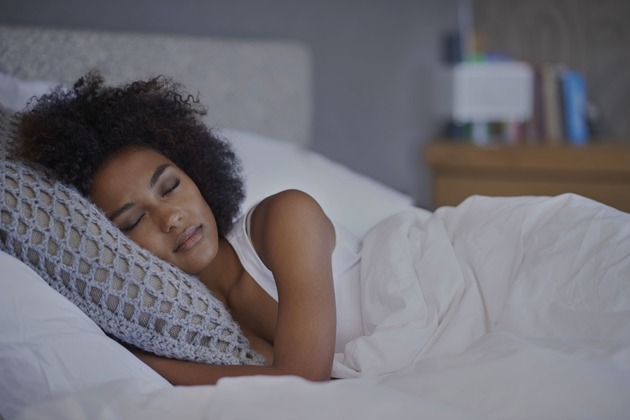The world celebrated the 12th annual World Sleep Day on 15th March with the main theme being the importance of having enough sleep. The date changes every year as it is always slated for the first Friday before the spring vernal equinox. Last year World Sleep Day was on the 16th of March.
A huge chunk of the working class in Kenya rarely gets enough sleep with managers believing that long working hours guarantees high productivity. Quite the opposite – enough sleep will boost more productivity and a sleep deprived worker will deliver less!
While others are forced to work long hours because of a shortage of staff or engage in side jobs to enhance their earnings, sleep is viewed by many Kenyans as an unproductive time of the day. The same applies to Kenyans living abroad who do more than one menial job to make ends meet.
People enjoy sleep but most times do not get enough time to do so. Among the things that hinder people from getting enough sleep are stimulánts like coffee and energy drinks, alarm clocks, and external lights — including those from electronic devices.
You might be in bed but not actually sleeping especially for those suffering from insomnia, which often goes undiagnosed. With the coming of new technologies, young adults can spend a total of 10 hours in bed but only sleep for four or less because of constantly being on the phone or watching movies. This disrupts our “circadian rhythm” or natural sleep/wake cycle.
Kenya has been part in the celebrations of the annual event as mattresses manufacturer, Superfoam donated mattresses to a hospital in Kayole, Nairobi, as part of its efforts to promote sleep. Provide International Hospital, run by an non-governmental organisation and with another branch in Korogocho, received mattresses worth Ksh131,000.
“We are pleased to contribute towards promoting proper sleep and rest, not only for the sick but also for the healthy population as we mark World Sleep Day, ” Mr Mike Fischer, Superfoam’s CEO said. “In this case, patients and mothers who have brought new life to the world need a proper place to rest and recover quickly so that they can go home and start enjoying their motherhood journey,” .
On average, the working class sleeps for about 6 to 7 hours, as opposed to the medically advised 7-9 hours in a day.
Former ICT Principal Secretary Dr Bitange Ndemo, now an associate professor at the University of Nairobi’s School of Business, revealed he only slept for much less time – two hours – as the rest of the time he was engaged in various jobs to raise fees while studying in the United States.
[ Read: Employers should let workers take a nap in the office – it’s a wonderful motivator ]
“I usually worked during summer to raise fees. I worked 22 hours out of 24 to raise fees. I used to wake up, clean toilets from 6 to 10, then clean tables. From 2pm it was dishes, then get on a bicycle to a factory and around 3 or 4 distribute newspapers to people’s homes,” he says.

Hours of sleep, however, vary, according to age. The younger you are the more sleep you need. Nevertheless, it is important to pay attention to your own individual needs by assessing how you feel on different amounts of sleep.
Sleep makes you feel better but its importance goes way beyond just boosting your mood or banishing under-eye circles. Sleep boosts your memory; your mind is surprisingly busy while you’re asleep. During sleep, you can strengthen memories or practice skills learned while you were awake in a process experts call Consolidation.
The heart is a very important organ in the body and it tends to work well when one is getting enough sleep. Lack of sleep has been associated with worsening of blood pressure and cholesterol, which are risk factors for heart disèase and stroke. Your heart will be healthier if you get between 7 and 9 hours of sleep each night.
[ Related: Many of us actually sleep on bad mattresses. Use these 5 signs to do a reality check ]
Sleeping also reduces the risk of cancér to some degree. Researchers believe that late shift workers have a higher risk of developing breast and colon cancèr. According to research, exposure to light reduces the melatonin levels in your body. Melantonin is the hormone that controls your sleep/wake cycle and is thought to protect against cancér as it appears to suppress the growth of tumors. Be sure that your bedroom is dark and avoid using electronics before bed in order to help your body produce the melatonin it needs.
For those struggling with weight, there is one solution that can reduce weight gain; sleep. Studies show that sleep-deprived individuals have a bigger appetite and tend to eat more calories. Poor sleep is strongly linked to weight gain.
Hours of sleep recommended in 2015 by the National Sleep Foundation, a US organisation, for various age groups:
- Newborns (0-3 months): Sleep range narrowed to 14-17 hours each day (previously it was 12-18)
- Infants (4-11 months): Sleep range widened two hours to 12-15 hours (previously it was 14-15)
- Toddlers (1-2 years): Sleep range widened by one hour to 11-14 hours (previously it was 12-14)
- Preschoolers (3-5): Sleep range widened by one hour to 10-13 hours (previously it was 11-13)
- School age children (6-13): Sleep range widened by one hour to 9-11 hours (previously it was 10-11)
- Teenagers (14-17): Sleep range widened by one hour to 8-10 hours (previously it was 8.5-9.5)
- Younger adults (18-25): Sleep range is 7-9 hours (new age category)
- Adults (26-64): Sleep range did not change and remains 7-9 hours
- Older adults (65+): Sleep range is 7-8 hours (new age category)
[ Next: Meet the gorgeous sisters of TV queen Betty Kyalo ]











2 Comments